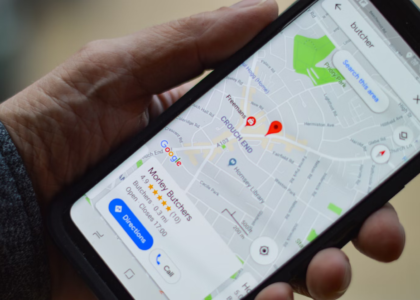When I first started optimizing websites for search engines, one thing that left me puzzled was the role of nofollow links in SEO. After all, we’ve always been told that backlinks are one of the most important ranking factors for Google. However, nofollow links seem to be a mystery in the world of SEO. Should they be ignored, or do they have a purpose? Can nofollow links actually help your website’s SEO performance?
In this blog, I’ll dive into the role of nofollow links in SEO, explaining what they are, whether they help with SEO, and how you can use them to your advantage.
What Are Nofollow Links?
Before we explore the impact of nofollow links on SEO, it’s important to understand what they are.
A nofollow link is a hyperlink that has a specific attribute called rel=”nofollow”. This attribute tells search engines not to follow the link and not to pass on any link juice (ranking power) to the target page. Here’s an example of a nofollow link:
Now, why would someone use a nofollow link? The primary reason is to prevent link juice from flowing to a particular page. This can be useful for a variety of reasons, including:
- Preventing spammy or untrusted sites from gaining ranking power.
- Avoiding passing link juice to paid advertisements or sponsored content.
- Managing the flow of link equity within your website.
Initially, I wondered if these links were completely useless for SEO. However, over time, I’ve learned that nofollow links can still play a role in a comprehensive SEO strategy.
Do Nofollow Links Help SEO?
So, the burning question: do nofollow links help SEO? The short answer is yes, but with some nuances. Here’s why:
1. Nofollow Links Don’t Directly Impact Rankings
First, it’s important to recognize that nofollow links do not directly pass link juice to a page. This means that they don’t contribute to your rankings in the same way that regular (dofollow) links do.
However, the absence of link juice doesn’t mean they are entirely without value for SEO. Let me explain further.
2. Indirect SEO Benefits
While nofollow links may not impact rankings directly, they can still help you indirectly by increasing visibility and driving traffic to your site. Here’s how:
- Increased Traffic: When a nofollow link is placed on a high-traffic website, it can lead to an influx of visitors to your site. While this doesn’t directly affect rankings, it improves your website’s traffic, which could eventually lead to organic backlinks and increased exposure.
- Brand Exposure: Nofollow links often come from reputable websites, such as news outlets or industry blogs. These links expose your brand to a wider audience, which can lead to brand recognition and trust. As your brand grows, you may naturally earn more organic links (which are dofollow).
- Social Proof and Credibility: Links from high-authority sites, even if they are nofollow, help establish credibility and social proof. If people see your site mentioned in well-known publications, they may be more likely to visit your site or recommend it to others, which could lead to more dofollow backlinks.
3. Nofollow Links and Link Diversity
One thing I’ve come to understand is that link diversity is important for a well-rounded SEO strategy. If you only rely on dofollow links, search engines may see this as unnatural, leading to a potential risk of penalties. Nofollow links help you achieve a natural and balanced backlink profile. A mix of dofollow and nofollow links shows search engines that your website’s link-building efforts are organic and genuine.
From my experience, adding nofollow links strategically helps your website’s SEO by maintaining that essential balance. It prevents the link profile from appearing manipulative, which is a crucial factor in avoiding penalties from Google.
4. Influence on Page Authority and Traffic Flow
Another point to consider is that while nofollow links don’t pass link juice, they still contribute to your site’s overall authority. When high-authority sites link to you—even with a nofollow tag—they’re recognizing your content as worth mentioning. Over time, these nofollow links can lead to increased organic visibility, even if they don’t provide direct ranking benefits.
Moreover, if a nofollow link appears on a page that is shared widely or linked to by multiple sources, it can act as a gateway to your website, generating new traffic and opportunities for organic link-building.
5. Link Building Strategy for Local SEO
In local SEO, nofollow links can be especially valuable. For example, many local business directories and industry-related sites will include nofollow links to prevent spam. While these links won’t directly boost your rankings, they can still provide valuable exposure to your local audience. This can lead to brand recognition and a higher likelihood of earning more quality backlinks from local websites, blogs, and media outlets.
In my case, I noticed that nofollow links on local directories helped my website build local authority, and over time, this translated into more dofollow backlinks from local businesses and organizations.
6. Nofollow Links and SEO Spam Prevention
Nofollow links play an important role in preventing spammy behavior, which could negatively impact your SEO. For example, if your website or blog allows user-generated content, such as comments or forum posts, using nofollow links for external URLs can help prevent spammers from exploiting your website’s link juice for their own benefit. By implementing nofollow attributes, you safeguard your site from the potential harm of spam links, while still allowing user engagement.
Best Practices for Using Nofollow Links in Your SEO Strategy
Now that we’ve established that nofollow links can help your SEO strategy indirectly, it’s important to use them properly. Here are some best practices I’ve found for adding nofollow links effectively:
1. Use Nofollow Links for Paid Content
If you’re running ads or paid sponsorships on your website, always use nofollow links. This ensures that search engines don’t mistake these paid links for organic ones and protects your website from potential penalties.
2. Nofollow for User-Generated Content
As mentioned earlier, it’s crucial to use nofollow links for user-generated content like comments, forum posts, and reviews. This keeps your website from being penalized for spammy links, while still allowing users to engage.
3. Diversify Your Backlink Profile
Even if nofollow links don’t directly impact SEO, they still play a vital role in a healthy backlink profile. Make sure to include them alongside dofollow links to maintain diversity and natural growth.
4. Focus on Quality Over Quantity
Whether nofollow or dofollow, the quality of the linking site matters far more than the type of link. A nofollow link from a high-authority site can be far more valuable than a dofollow link from a low-quality source. Prioritize building relationships with trusted websites that are relevant to your niche.
Do Nofollow Links Help SEO?
While nofollow links don’t pass direct link juice or impact rankings in the same way dofollow links do, they still offer significant indirect SEO benefits. They help with traffic generation, brand exposure, and link diversity, and they can even contribute to your overall SEO strategy by ensuring a natural and balanced link profile.
In my own experience, nofollow links can be just as valuable as dofollow links—just not in the traditional sense. By using them strategically, you can protect your website from spam, improve your local SEO, and expand your brand’s reach.
So, yes, nofollow links do help SEO—just not in the way you might have expected!




